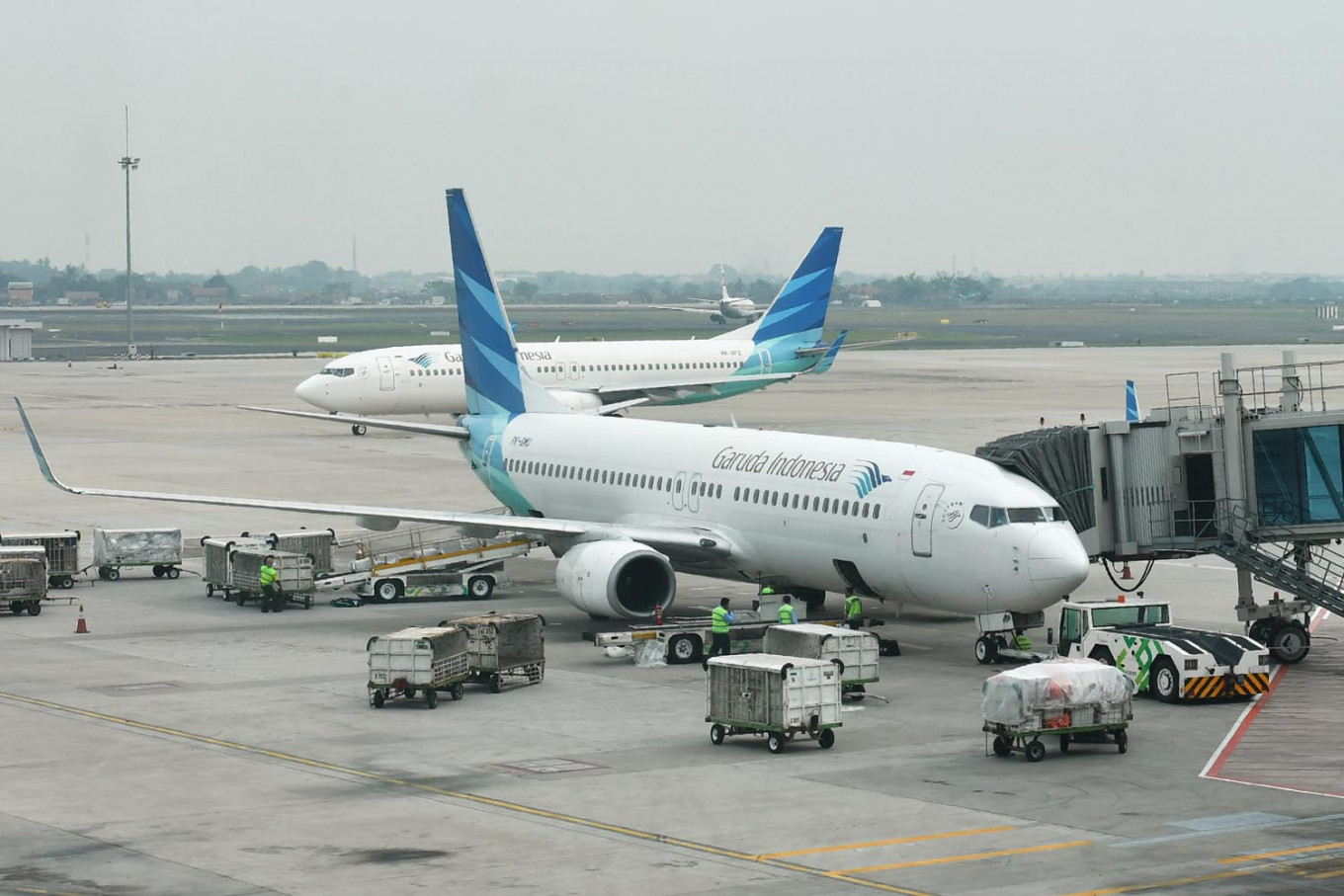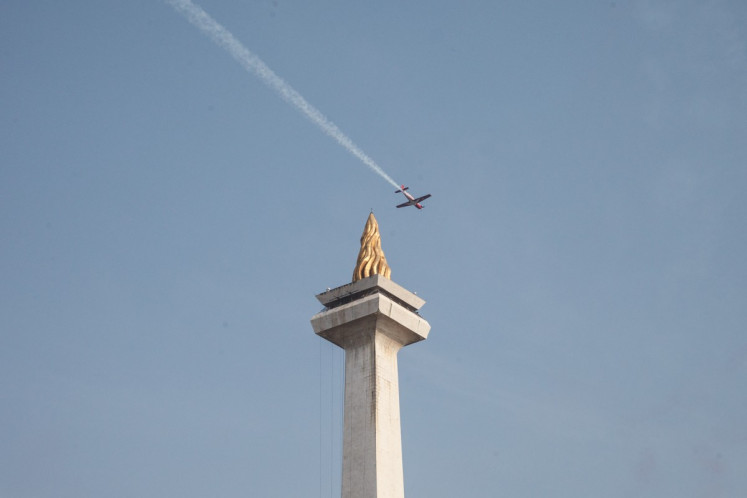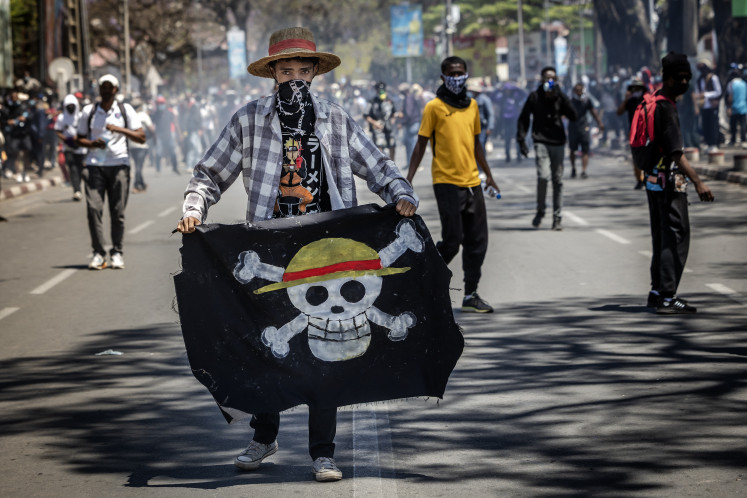Popular Reads
Top Results
Can't find what you're looking for?
View all search resultsPopular Reads
Top Results
Can't find what you're looking for?
View all search resultsNational airlines need government aid to survive
National airlines will largely depend on domestic flights to grow because international flights are expected to remain severely restricted until a COVID-19 vaccine is available.
Change text size
Gift Premium Articles
to Anyone
A
irlines and airport operators are among the businesses severely affected by the COVID-19 pandemic. The drastic reduction in the frequency of both domestic and international scheduled flights over the last three months has led to the layoffs of many employees in the commercial aviation industry. Worse still, it remains uncertain how long it will take to develop a vaccine for the virus.
As with most other airlines around the world, salary cuts and layoffs have also hit Indonesian airlines. Most recently, the Lion Air Group announced it would postpone the THR (holiday bonus) installment payments for Idul Fitri, which should equal at least one month’s pay by law. Meanwhile, state-owned flag carrier Garuda Indonesia has furloughed about 800 contract workers.
Instead of cancelling the Idul Fitri THR and cutting salaries or laying off employees, however, the two state-owned airport operators Angkasa Pura I and Angkasa Pura II, which together manage 34 airports across the archipelago, decided to cut costs and improve efficiency by streamlining their organizational structure and reducing senior management posts.
As part of the national efforts to curb virus transmission, the Transportation Ministry decided on April 24 to impose a strict travel restriction through end May on domestic passenger flights between cities classified as “red zones” (high infection), including Jakarta, Surabaya and Makassar.
However, as the travel restriction virtually halted cash flow and increased liquidity pressures for airline companies, the government relaxed the restriction in the first week of May in response to industry demands and allowed the limited operation of domestic passenger flights. These flights must operate under special health protocols for passengers, such as wearing masks and presenting health documents that declare them virus-free and maintaining physical distance in onboard seating arrangements.
Garuda Indonesia resumed passenger services on May 7, Citilink on May 8, Lion Air on May 10 and Sriwijaya Air on May 13. Only AirAsia remains grounded, although it plans to resume passenger flights in early June.
During the first few days of resuming passenger flights, air travelers often formed large crowds at Jakarta’s Soekarno-Hatta airport in violation of physical distancing rules.
Lion Air was found to have breached the in-flight physical distancing rules on an Airbus A-320 operating a Batik Air flight on May 14 from Jakarta to Denpasar that carried more than 50 percent of the aircraft’s seating capacity. As a consequence, the Transportation Ministry temporarily halted several Batik Air routes.
This Batik Air case illustrates the dilemma airlines face in light of the COVID-19 restrictions.
It is worth noting that the International Air Transport Association (IATA) neither requires nor recommends strict physical distancing rules aboard aircraft. It instead recommends preventive measures such as wearing masks, limiting in-flight cabin movement and reducing direct contact between passengers and flight crew. IATA also requires modern jetliners to circulate a high proportion of outside air in combination with hospital-grade HEPA filters to reduce the risk of Covid-19 transmission aboard aircraft.
If airlines are forced to maintain physical distancing in their seating arrangements, they must increase their fares to compensate for the seats that cannot be sold.
Two national airlines are currently registered members of IATA, namely Batik Air and Garuda Indonesia.
As a result, there is a conflict between the IATA recommendations and the health protocols stipulated in Transportation Ministry Regulation No. 18/2020. National airlines are clearly bound by Indonesian laws, but they may still be “tempted” to breach the physical distancing rules to survive.
National airlines will largely depend on domestic flights to grow because international flights are expected to remain severely restricted until a COVID-19 vaccine is available. To illustrate, national airlines carried 94 million passengers on domestic flights in 2017, compared to 19 million passengers on international flights.
As long as physical distancing is a requirement, airlines should be allowed to raise their fares so they are commercially viable. The government therefore needs to review the cap for fares on domestic flights; otherwise, it would be impossible for airlines to survive.
Even future airport development and expansion plans could be in jeopardy, as Angkasa Pura would continue to lose money.
Hence, government intervention is needed to help national airlines weather the impacts of the pandemic on air travel, not only through a concerted effort to promote domestic and foreign arrivals but also by providing concessional loans if airlines need such assistance as a contingency to prevent bankruptcy.
As the world’s largest archipelagic country, Indonesia needs several efficient and competitive airline companies to enhance inter-island connectivity and maintain the flow of goods and people.
***
Aviation and aerospace law lecturer of the international business law program at Prasetiya Mulya University










